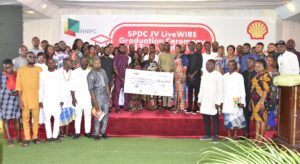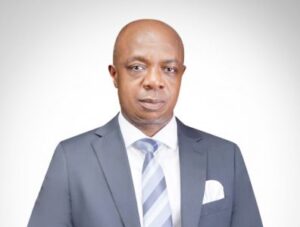


Experts task FG on investment in modern power infrastructure
Some experts in the power industry have urged the Federal Government to prioritise investment in modern power infrastructure to mitigate frequent system collapses.
The experts made the urge in separate interviews on Sunday in Lagos.
Recall that on March 28, the national electricity transmission network, otherwise known as the grid, collapsed and plunged millions of homes and businesses into darkness.
This marks the fourth collapse of the grid in the first three months of the year.
Commenting on the development, National Coordinator, Coalition for Affordable and Regular Electricity (CARE), Mr Chinedu Bosah said system collapse could be stopped by reversing the power privatisation and investing more in modern power infrastructure.
Bosah said that such investment must be carried out transparently, and under the democratic control of workers and consumers.
This, he said, would forestall the usual corruption and inefficiency linked to public investment.
He said that if transmission infrastructure had to be upgraded, it would require massive investment, but had to be pursued to achieve public interest.
“If the ruling elite continues to see investment from the point of personal enrichment, very little will be achieved.
“Hence, all subsequent investments must not be determined and handled by the corrupt bureaucracy.”
According to him, it has to be people-oriented, transparent and managed by workers and consumers if it has to achieve its set goals.
The expert said, “System collapses have come to stay, it is now part of the electricity value chain and it is multifaceted.
“It is also a system collapse when the distribution companies reject load electricity and plunge communities into darkness or distribute electricity through poor facilities and infrastructure.
“It is a system collapse when the GenCos fail to generate more electricity for Nigerians.”
Bosah said that apart from the plan to increase power generation from 3,500 MW to 6,500 MW, the minister of power should also have told Nigerians how to achieve it.
“We expect the generation companies to make such a promise and show the plan to achieve this, not the minister.
“In other words, 6,500 MW for a population of over 200 million people cannot be celebrated. It is a feat that endorses our backwardness and underdevelopment.
“The generation of 6,500 MW will still leave many Nigerians in darkness,” he said.
Bosah condemned the clamour for the privatisation of the Transmission Company of Nigeria (TCN), saying, “they have not learnt anything from the failure of the privatisation of the generation and distribution aspect of the power sector.”
“It would have made sense if the GenCos and DisCos are doing very well. But in fact, the GenCos have not added 1 MW since privatisation while the DisCos are distributing darkness in most cases,” he added.
He said that the problem with GenCos, DisCos, and TCN were major companies, put together, to actualise profits for the owners and the managers.
The Chairman of the Customer Consultative Forum of Festac/Satellite Town, Mr Akinrolabu Olukayode, called for a thorough audit of past investments.
He alleged that there had been diversion of funds into private pockets and therefore advocated for a change in management.
He suggested an injection of fresh talent to combat corruption and inefficiency.
“There is no way that you will obtain a different result when you keep adopting the same approach.
“It is when you change the approach that you can visibly obtain a different result.
“It is crystal clear that the huge investment in the energy sector is diverted into a private purse for personal gains,” he added.
He said that the accumulated effects of consistent failure to utilise budgeted funds for the maintenance of the national grid were responsible for the collapses.
“The projected increase from 3,500MW to 6,500MW in the next six months is doable and feasible.
“The power generating plants in Nigeria have 11,165MW capacity.
“There are 23-26 power generating plants, out of which Jebba and Shiroro are hydro plants, suffering water management presently.
“The largest power plant (Egbin) is having a shortfall of 514MW and Geregu, 230MW, and many others.
“If the management of gas and water supply is adequately tracked and maintained with 11,165MW capacity, the realisation of 6,500MW will be a walkover for the minister without any further ado,” Olukayode noted.
He said that the privatisation of TCN might be an option but not necessarily the most appropriate panacea to the lingering power shortage.



